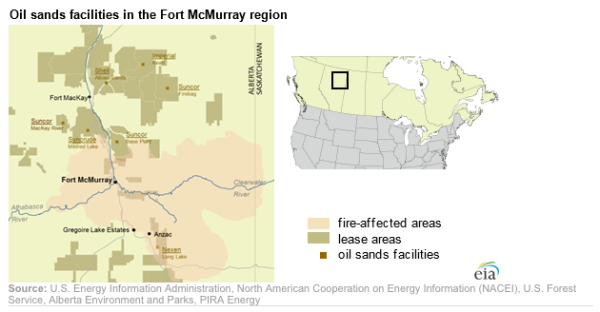While we increasingly hear about record-setting temperatures or unusual weather patterns and extreme events, evidence of concrete, climate-related, business losses is also mounting.
This May the energy industry in Canada experienced significant cut backs due to unprecedented wildfires in Alberta. Specifically, the fires led to a reduction of tar sands production by about one-third, or 800,000 barrels per day, according to data released by the U.S. Energy Information Administration.
Tar sands is clearly one of the least environmentally beneficial sources of energy production. However, this highlights a growing risk for the entire energy industry’s infrastructure, pipelines and transmission systems.
Meanwhile, weather and climate extreme events continue to “shatter records” as The Guardian reports that “May was the 13th month in a row to break temperature records.” This is one of seven 2016 climate records The Guardian has compiled for this year, others include:
- The Arctic had its warmest winter on record in 2015-16
- India recorded its hottest day ever
- Alaska had the warmest spring ever
- The size of the increase in atmospheric CO2 concentrations is expected to set a record for largest year-on-year increase
- Australia record its hottest fall ever
- Massive coral bleaching occurred in the Great Barrier Reef
Add to this a recent statement by climate scientist Michael Mann that we can expect scorching heat in the U.S. Southwest to become the new normal and the need for both mitigation and adaptation has never been clearer.



